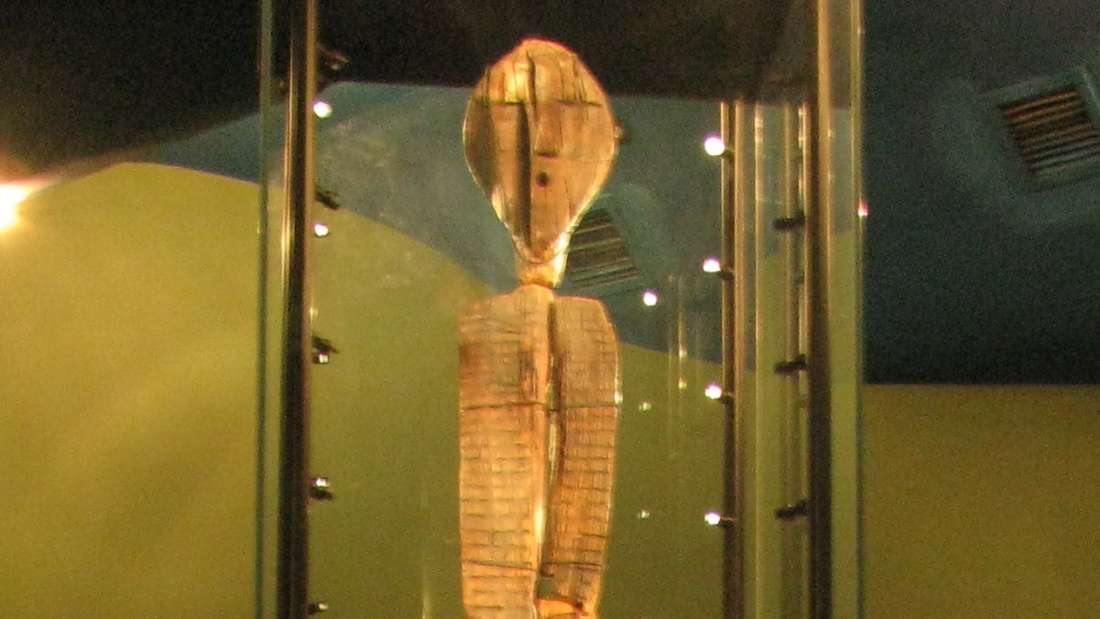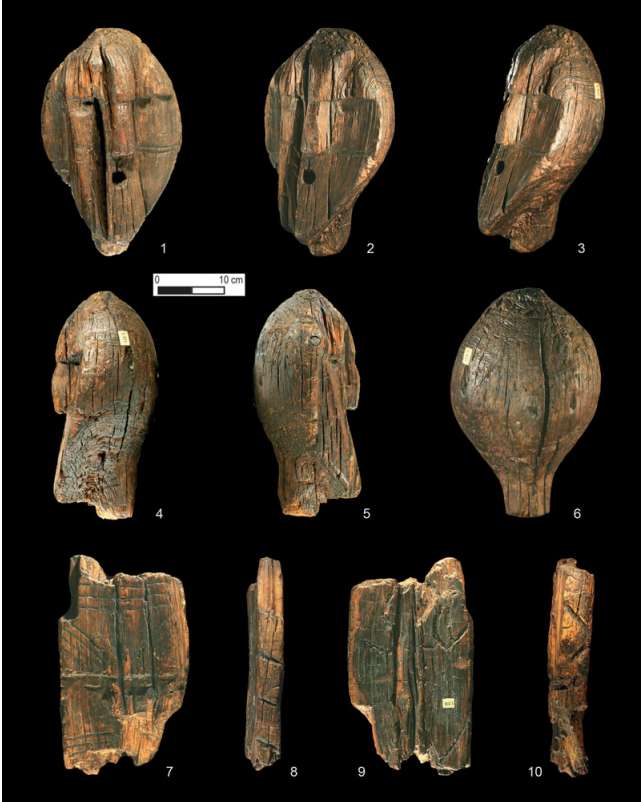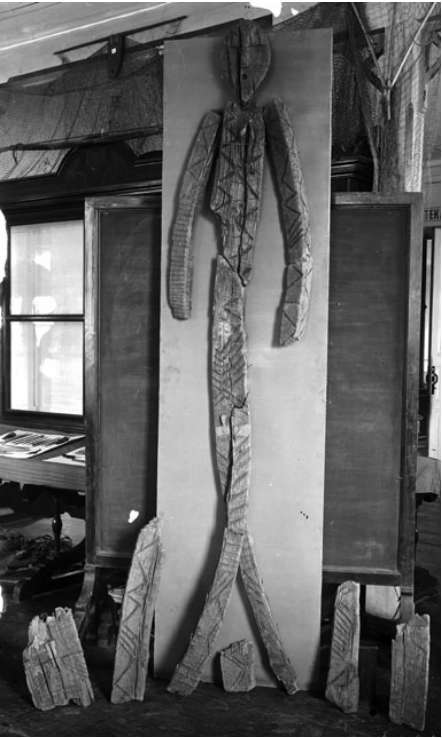At the end of the last Ice Age, as mammoths were roaming the plains and cave lions prowled in the shadows, a group of people in Siberia felled a tree and began to carve it into a human-like form. What this statute was for is still shrouded in mystery, but new research has revealed that the wooden idol is twice as old as the Great Pyramids of Giza.

The latest study, published the journal Antiquity, has not only refined just how old we think the eerie idol is, but could also hint at what they may have been using the statue for.
The idol was actually first uncovered in 1894, buried under 4 meters (13 feet) of peat in the bog of Shigir, which gives the statute its common name: the Shigir Idol. Uncovered in sections, it was finally pieced together in 1914, revealing that it would once have stood an impressive 5.3 meters (17 feet) tall, although not all of the pieces of the statue survived.

The head of The Shigrir Idol. Zhillin et al. 2018
Yet it was not until a hundred years later that advances in technology allowed researchers to finally test the incredible piece of art, and gain an estimate of just how old it is. By radiocarbon dating two sections of the idol, they determined that it was about 9,800 years old. At the time this was extraordinary, and many academics rejected this finding as being impossibly old for a wooden object.
Radiocarbon dating back then, however, was clunky and not particularly precise. Coupled with the fact that the first tests sampled just two bits of the Shigir Idol, researchers wanted to re-examine the statue. They took cores of the wood to make sure that they were uncontaminated over the last century.
Using modern techniques, they have revealed that the idol was carved from a single larch wood log some 11,600 years ago. This is over twice as old as the pyramids in Egypt, and the oldest wooden artwork known to survive.
This is clearly an incredible discovery, but it has wider implications for the development of monumental art pieces by early humans transitioning out of the Ice Age. What is interesting is that the style and imagery of the Shigir Idol is incredibly similar to other grand Ice Age statutes uncovered at Göbekli Tepe in Turkey. The only thing that is dramatically different is the material in which the statues were crafted.
This suggests that the culture of producing these huge, symbolic and presumably ritualistic pieces of artwork did not originate in one place as the Ice Age receded, but sprung up at multiple centers around the same time. What led to this sudden development and flare of artistic or religious devotion is still not fully understood, but asks intriguing questions about our culture and beliefs.
The statue as it was first reconstructed in 1914. Zhillin et al. 2018









 Photographer Finds Locations Of 1960s Postcards To See How They Look Today, And The Difference Is Unbelievable
Photographer Finds Locations Of 1960s Postcards To See How They Look Today, And The Difference Is Unbelievable  Hij zet 3 IKEA kastjes tegen elkaar aan en maakt dit voor zijn vrouw…Wat een gaaf resultaat!!
Hij zet 3 IKEA kastjes tegen elkaar aan en maakt dit voor zijn vrouw…Wat een gaaf resultaat!!  Scientists Discover 512-Year-Old Shark, Which Would Be The Oldest Living Vertebrate On The Planet
Scientists Discover 512-Year-Old Shark, Which Would Be The Oldest Living Vertebrate On The Planet  Hus til salg er kun 22 kvadratmeter – men vent til du ser det indvendigt
Hus til salg er kun 22 kvadratmeter – men vent til du ser det indvendigt  Superknepet – så blir snuskiga ugnsformen som ny igen!
Superknepet – så blir snuskiga ugnsformen som ny igen!  Meteorite That Recently Fell in Somalia Turns Out to Contain Two Minerals Never Before Seen on Earth
Meteorite That Recently Fell in Somalia Turns Out to Contain Two Minerals Never Before Seen on Earth  Nearly Frozen Waves Captured On Camera By Nantucket Photographer
Nearly Frozen Waves Captured On Camera By Nantucket Photographer  It’s Official: Astronomers Have Discovered another Earth
It’s Official: Astronomers Have Discovered another Earth 